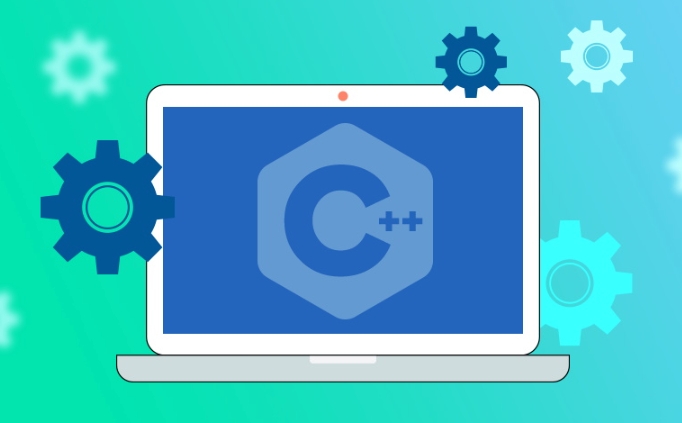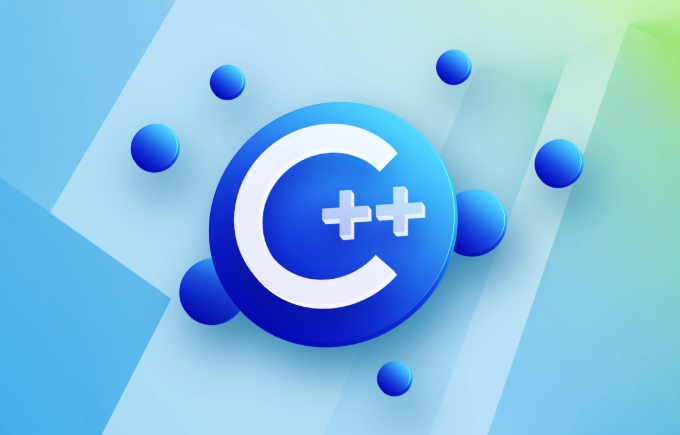Tag dispatching in C is a technique that selects function implementations at compile time based on type traits or categories using dummy tag types. 1. It works by defining empty struct tags to represent different type categories. 2. Functions are overloaded to accept these tags as parameters, enabling the compiler to choose the correct implementation. 3. The main function determines which tag to pass, directing execution to the appropriate overload. 4. It is used for performance optimization, code clarity, and extensibility in generic programming. 5. It is especially useful in libraries like the STL for handling various iterator types efficiently. 6. Potential issues include ensuring all cases are covered and managing added complexity from boilerplate code.

Tag dispatching in C is a technique used to select different function implementations based on the type or category of an object — often related to iterator categories or traits. It’s a way to leverage function overloading with special tag types to guide the compiler to the right implementation at compile time.

It might sound abstract, but it's actually pretty practical once you see how it works.

How does tag dispatching work?
At its core, tag dispatching uses dummy types (tags) to distinguish between different versions of a function. These tags don't carry any data — they're just markers that let the compiler choose the correct overload.
For example, imagine you want to write a generic advance function that moves an iterator forward by a certain number of steps. The most efficient way to do this depends on the iterator type: random access iterators can jump directly, while forward-only iterators have to step one by one.

You'd define empty struct tags like:
struct random_access_iterator_tag {};
struct input_iterator_tag {};Then create overloads of your function that take these tags as arguments:
template <typename Iterator>
void advance(Iterator& it, int n, random_access_iterator_tag) {
it = n; // fast jump
}
template <typename Iterator>
void advance(Iterator& it, int n, input_iterator_tag) {
while (n--) it; // step-by-step
}The main function would determine which tag to use and call the appropriate version.
Why use tag dispatching?
- Performance: You can optimize behavior for different types without runtime checks.
- Clarity: It makes code easier to read when the logic clearly separates into cases.
- Extensibility: You can add new cases later without changing existing code much.
This pattern is especially useful in libraries where performance and flexibility matter — like the STL.
When should I consider using it?
You’ll probably reach for tag dispatching when:
- You’re writing generic code that needs to behave differently based on type traits.
- You want to avoid runtime condition checks in performance-critical sections.
- You need to support custom types that can declare their own capabilities.
A common real-world example is implementing algorithms that work with various iterator types efficiently.
Here’s a simplified version of how the dispatch might look in practice:
template <typename Iterator>
void advance(Iterator& it, int n) {
advance(it, n, typename Iterator::iterator_category());
}This pulls the iterator's category tag and forwards it to the correct overload.
A few gotchas
- You need to make sure all relevant cases are covered — otherwise, you might end up with a compile error.
- Tags must be unique and well-named to avoid confusion.
- It adds some boilerplate, so it's best reserved for situations where the benefits clearly outweigh the complexity.
Basically, it's a powerful tool when you need compile-time routing based on type characteristics. Not something you'll use every day, but super handy when the situation calls for it.
The above is the detailed content of What is tag dispatching in C ?. For more information, please follow other related articles on the PHP Chinese website!

Hot AI Tools

Undress AI Tool
Undress images for free

Undresser.AI Undress
AI-powered app for creating realistic nude photos

AI Clothes Remover
Online AI tool for removing clothes from photos.

Clothoff.io
AI clothes remover

Video Face Swap
Swap faces in any video effortlessly with our completely free AI face swap tool!

Hot Article

Hot Tools

Notepad++7.3.1
Easy-to-use and free code editor

SublimeText3 Chinese version
Chinese version, very easy to use

Zend Studio 13.0.1
Powerful PHP integrated development environment

Dreamweaver CS6
Visual web development tools

SublimeText3 Mac version
God-level code editing software (SublimeText3)

Hot Topics
 Using std::chrono in C
Jul 15, 2025 am 01:30 AM
Using std::chrono in C
Jul 15, 2025 am 01:30 AM
std::chrono is used in C to process time, including obtaining the current time, measuring execution time, operation time point and duration, and formatting analysis time. 1. Use std::chrono::system_clock::now() to obtain the current time, which can be converted into a readable string, but the system clock may not be monotonous; 2. Use std::chrono::steady_clock to measure the execution time to ensure monotony, and convert it into milliseconds, seconds and other units through duration_cast; 3. Time point (time_point) and duration (duration) can be interoperable, but attention should be paid to unit compatibility and clock epoch (epoch)
 What is the volatile keyword in C ?
Jul 04, 2025 am 01:09 AM
What is the volatile keyword in C ?
Jul 04, 2025 am 01:09 AM
volatile tells the compiler that the value of the variable may change at any time, preventing the compiler from optimizing access. 1. Used for hardware registers, signal handlers, or shared variables between threads (but modern C recommends std::atomic). 2. Each access is directly read and write memory instead of cached to registers. 3. It does not provide atomicity or thread safety, and only ensures that the compiler does not optimize read and write. 4. Constantly, the two are sometimes used in combination to represent read-only but externally modifyable variables. 5. It cannot replace mutexes or atomic operations, and excessive use will affect performance.
 How to get a stack trace in C ?
Jul 07, 2025 am 01:41 AM
How to get a stack trace in C ?
Jul 07, 2025 am 01:41 AM
There are mainly the following methods to obtain stack traces in C: 1. Use backtrace and backtrace_symbols functions on Linux platform. By including obtaining the call stack and printing symbol information, the -rdynamic parameter needs to be added when compiling; 2. Use CaptureStackBackTrace function on Windows platform, and you need to link DbgHelp.lib and rely on PDB file to parse the function name; 3. Use third-party libraries such as GoogleBreakpad or Boost.Stacktrace to cross-platform and simplify stack capture operations; 4. In exception handling, combine the above methods to automatically output stack information in catch blocks
 What is a POD (Plain Old Data) type in C ?
Jul 12, 2025 am 02:15 AM
What is a POD (Plain Old Data) type in C ?
Jul 12, 2025 am 02:15 AM
In C, the POD (PlainOldData) type refers to a type with a simple structure and compatible with C language data processing. It needs to meet two conditions: it has ordinary copy semantics, which can be copied by memcpy; it has a standard layout and the memory structure is predictable. Specific requirements include: all non-static members are public, no user-defined constructors or destructors, no virtual functions or base classes, and all non-static members themselves are PODs. For example structPoint{intx;inty;} is POD. Its uses include binary I/O, C interoperability, performance optimization, etc. You can check whether the type is POD through std::is_pod, but it is recommended to use std::is_trivia after C 11.
 How to call Python from C ?
Jul 08, 2025 am 12:40 AM
How to call Python from C ?
Jul 08, 2025 am 12:40 AM
To call Python code in C, you must first initialize the interpreter, and then you can achieve interaction by executing strings, files, or calling specific functions. 1. Initialize the interpreter with Py_Initialize() and close it with Py_Finalize(); 2. Execute string code or PyRun_SimpleFile with PyRun_SimpleFile; 3. Import modules through PyImport_ImportModule, get the function through PyObject_GetAttrString, construct parameters of Py_BuildValue, call the function and process return
 What is function hiding in C ?
Jul 05, 2025 am 01:44 AM
What is function hiding in C ?
Jul 05, 2025 am 01:44 AM
FunctionhidinginC occurswhenaderivedclassdefinesafunctionwiththesamenameasabaseclassfunction,makingthebaseversioninaccessiblethroughthederivedclass.Thishappenswhenthebasefunctionisn’tvirtualorsignaturesdon’tmatchforoverriding,andnousingdeclarationis
 How to pass a function as a parameter in C ?
Jul 12, 2025 am 01:34 AM
How to pass a function as a parameter in C ?
Jul 12, 2025 am 01:34 AM
In C, there are three main ways to pass functions as parameters: using function pointers, std::function and Lambda expressions, and template generics. 1. Function pointers are the most basic method, suitable for simple scenarios or C interface compatible, but poor readability; 2. Std::function combined with Lambda expressions is a recommended method in modern C, supporting a variety of callable objects and being type-safe; 3. Template generic methods are the most flexible, suitable for library code or general logic, but may increase the compilation time and code volume. Lambdas that capture the context must be passed through std::function or template and cannot be converted directly into function pointers.
 What is a null pointer in C ?
Jul 09, 2025 am 02:38 AM
What is a null pointer in C ?
Jul 09, 2025 am 02:38 AM
AnullpointerinC isaspecialvalueindicatingthatapointerdoesnotpointtoanyvalidmemorylocation,anditisusedtosafelymanageandcheckpointersbeforedereferencing.1.BeforeC 11,0orNULLwasused,butnownullptrispreferredforclarityandtypesafety.2.Usingnullpointershe






